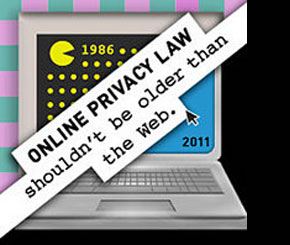Electronic Privacy Act Turns 25; No Celebrations!
By siliconindia
|
Monday, 24 October 2011, 23:15 IST
ECPA was good back in 1986. However, technological developments have far surpassed what anyone, including lawmakers, could have anticipated then. Now in 2011, there are more wireless devices than people in United States. Most Americans use internet, and more than a hundred million Americans are supposed to be on Facebook. And every time they chat, search, and connect online using all the astonishing new technology developed since 1986, they leave digital footprints regarding who they are, where they go, and what they do and believe.
 The government asserts that it does not require going to a judge and getting a warrant to access these details. What about personal email archives? What about the privacy of all those documents and photos stored in the cloud? The standard for government access to those sensitive materials is not clear either, because the law written in 1986 is not equivalent to the recent digital world we live in.
The companies like Google and Facebook, noticeably emphasize on how a law enacted 25 years ago has become outdated in an age of cloud computing, gigabit networks, and terabyte storage.
An alliance of groups, which include liberal, conservative, and libertarian non-profit organizations as well as companies, hope to convince the U.S. Congress to update the law to include location privacy and to protect documents stored on the Web through services like Google Docs, Flickr, and Picasa.
ECPA has now become complicated and tricky even for judges to chase. The groups hope to make simpler the wording while requiring police to get hold of a search warrant to access private communications and the locations of mobile devices, which is not always the case today.
The government asserts that it does not require going to a judge and getting a warrant to access these details. What about personal email archives? What about the privacy of all those documents and photos stored in the cloud? The standard for government access to those sensitive materials is not clear either, because the law written in 1986 is not equivalent to the recent digital world we live in.
The companies like Google and Facebook, noticeably emphasize on how a law enacted 25 years ago has become outdated in an age of cloud computing, gigabit networks, and terabyte storage.
An alliance of groups, which include liberal, conservative, and libertarian non-profit organizations as well as companies, hope to convince the U.S. Congress to update the law to include location privacy and to protect documents stored on the Web through services like Google Docs, Flickr, and Picasa.
ECPA has now become complicated and tricky even for judges to chase. The groups hope to make simpler the wording while requiring police to get hold of a search warrant to access private communications and the locations of mobile devices, which is not always the case today.